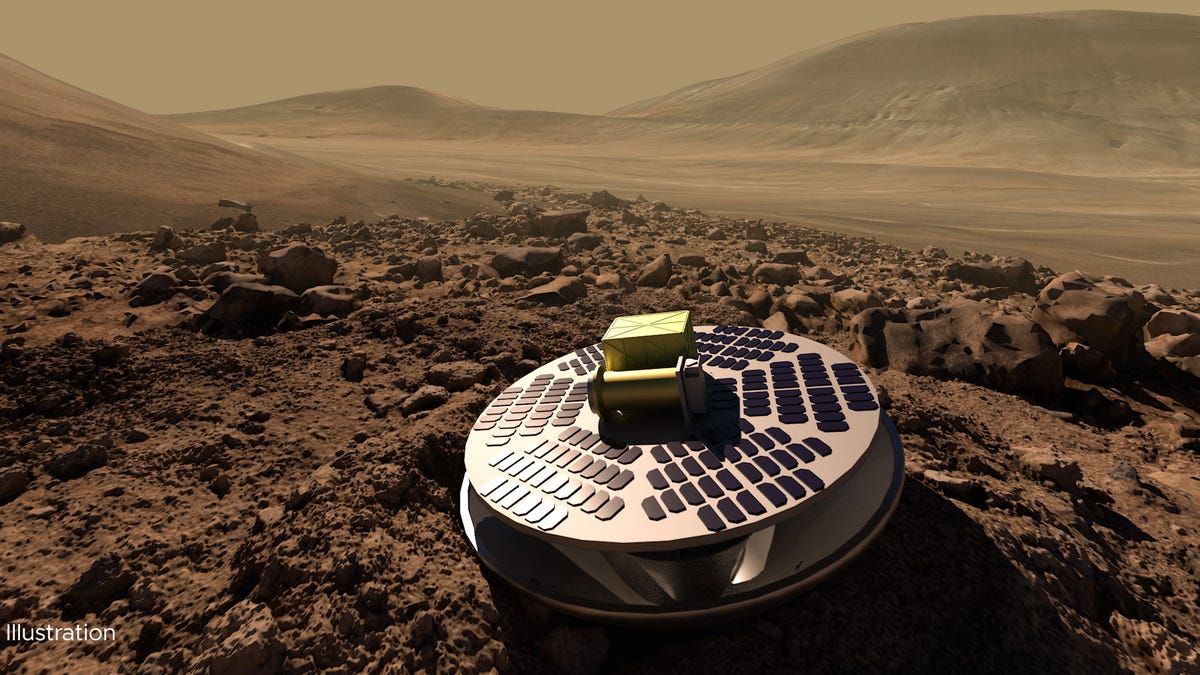See NASA Test a Wild Way to Crash Land on Mars on Purpose
Getting to the surface of the red planet could be more affordable with a crash lander.
Crash landing on Mars sounds scary, but it's actually not so bad when you consider NASA's current method of delivering rovers to the Martian surface is known as "seven minutes of terror." The space agency is investigating a new way to land equipment on the red planet by purposefully crashing.
Of course, this isn't just any ol' lander. NASA JPL is testing a design called SHIELD, which stands for Simplified High Impact Energy Landing Device. It uses an energy-absorbing cone made to crumple on impact, much like modern cars do when hit from in front or behind.
JPL shared a video on Thursday showing SHIELD in action during a drop test from a 90-foot-tall (27-meter-tall) tower. The device takes a hard landing at 110 mph (177 kph) into a thick steel plate to mimic the worst conditions it might experience during a Mars arrival. Remarkably, a cellphone tucked into the prototype survived the trip without so much as a cracked screen.
A system like SHIELD could be simpler, more affordable and more flexible than current designs, which involve parachutes and thrusters to slow the landing. "We think we could go to more treacherous areas, where we wouldn't want to risk trying to place a billion-dollar rover with our current landing systems," said SHIELD project manager Lou Giersch in a NASA JPL statement.
If the lander ends up working under Mars conditions, it could potentially be used for other interesting places in the solar system, including moons.
SHIELD is still in the early stages, but the initial drop test of the collapsible part of the lander was promising. The team will now get to work on designing the rest of the lander. Perhaps the seven minutes of terror for Mars arrivals will one day be shortened to "one second of terror" for the moment of impact.


